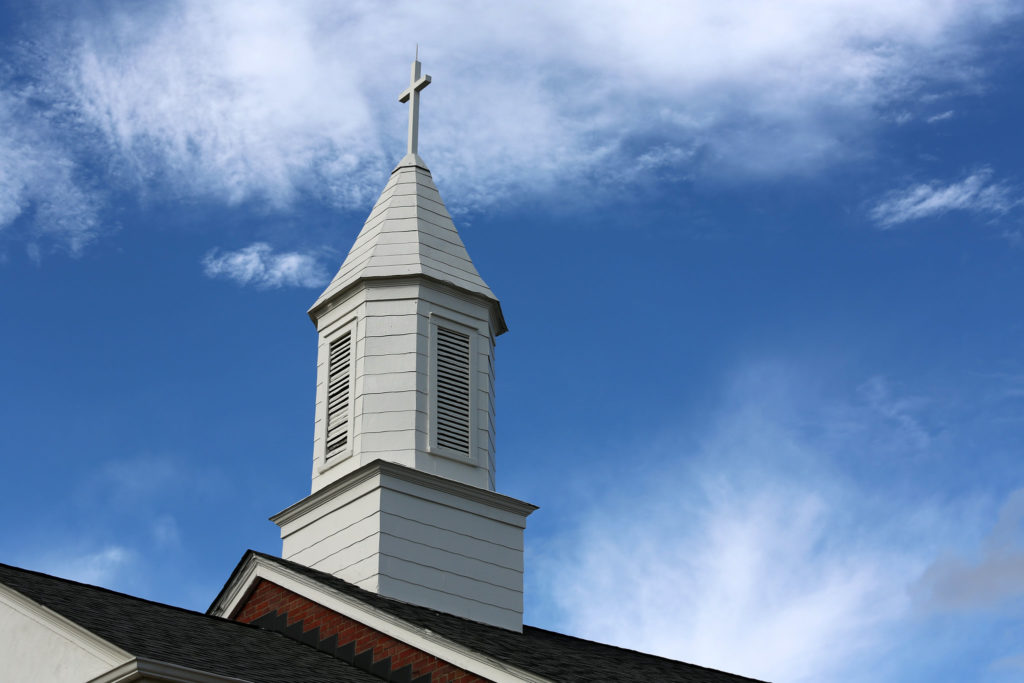
The United Methodist Church is one of the largest Protestant denominations in the United States, but it is experiencing a schism after years of debate about same-sex marriage and LGBTQ+ clergy members.
Earlier in May, more conservative and traditional members of the UMC formed a new denomination: the Global Methodist Church.
The Tennessean’s religion reporter Liam Adams joined This Is Nashville on Wednesday to explain what is happening in the United Methodist Church and the role Nashville plays in the split.
Host Khalil Ekulona: What is this new denomination?
Liam Adams: The new denomination is called the Global Methodist Church, and it officially launched on May 1, so just a few weeks ago. The launch is a sort of pivotal moment in this years-long debate and schism that’s been happening within the United Methodist Church, which is the largest mainline Protestant denomination in the country.
KE: When did this first begin?
LA: The debate came to a head in 2019. The disagreements within the United Methodist Church — there are a number of them, but some of the sort of most prominent were around the ordination of LGBTQ clergy and clergy’s ability to marry same-sex couples. That debate came to a head in 2019 for this special session of what they call the General Conference of the UMC when voting delegates make policy decisions for the denomination. After that special session … that’s when churches started to leave. The UMC and United Methodist came together to draft a plan to essentially split the denomination and create a new traditionalist denomination. So that’s what ended up happening a couple of weeks ago, that new denomination officially launched that had been in the works for a couple of years.
KE: What’s the difference between the denominations and what does the split mean for congregants?
LA: The significance is that the Global Methodist Church, which calls itself traditionalist, will hold more conservative stances on things like sexuality and gender. What we’re seeing is churches that are traditionalist within the UMC are leaving the UMC to join the Global Methodist Church. In 2020 and 2021, there are 132 churches that, the word they use is, “disaffiliated” from the UMC. We won’t know how many churches have disaffiliated this year until a few weeks from now when the regional governing bodies … sort of within the UMC meet, and resolutions will be approved to allow more churches to disaffiliate from the UMC and join the Global Methodist Church.
KE: Why is this specific to Nashville?
LA: Nashville is kind of a hub for the United Methodist Church. They have what they call these these general agencies and about half of the general agencies that serve various ministries within the UMC throughout the world … are based here in Nashville. There’s a presence of the international decision-making authority within the UMC based here in Nashville.
But then there’s also pretty large presence of United Methodist churches here. Just some some data within the Tennessee Western Kentucky conference — so that encompasses churches in Middle and West Tennessee — its directory had logged 918 churches, and then the conference for East Tennessee, which is called the Holston Conference, it had 862 entries in its directory. So there’s a lot of United Methodist churches in state.
KE: How do some of the people you spoke to in your reporting feel about this?
LA: It’s sort of tricky moment and sort of messy and complicated when it comes to the logistics of this new denomination launching and churches disaffiliating to join it. But it’s also sort of an emotionally charged moment. A couple of weeks ago, I went up to Indianapolis for a conference of the organization that’s behind the formation of the new denomination. At the conference, a lot of the sentiment expressed was frustration that United Methodist leaders are being unfair. … “Being in exile” — that was a phrase used frequently.
Then, there’s those who are choosing to stay with the denomination who I’ve spoken with who are more on the progressive end of the United Methodist Church — some of the United Methodist leaders here in Nashville — just expressing sadness at this moment. A lot of people describe it like a divorce.
KE: People may look at this as a simple fight over LGBTQ representation. Is there more to it than that?
LA: There is. The leaders within the traditionalist sort of denomination and community say it’s not just over sexuality and gender. They say it’s about larger beliefs about the Bible and theology. But at the same time, the debates around the ordination of LGBTQ clergy and whether clergy can marry same-sex couples, that’s really what drove the sort of debate in 2019 and kind of carved the path to where we are now.
KE: What can we expect next from your reporting?
LA: Earlier, I mentioned this plan to essentially split the denomination. That plan was supposed to be voted on at the General Conference of the UMC in 2020, but that General Conference continues to get postponed due to travel restrictions for international travelers with COVID-19. This General Conference where this plan is going to be voted on is scheduled in 2024. So for the next couple years, we are going to kind of see this steady flow of churches leaving the UMC and joining the new Global Methodist Church, but then there are also other churches that are waiting to leave the UMC until this plan is voted on in 2024. So this is going to be kind of drawn out for a couple of years. But we should also see sort of things pop up in the next few weeks when these regional governing bodies, these annual conferences meet and you will see voting delegates approve resolutions that allow churches to disaffiliate.


